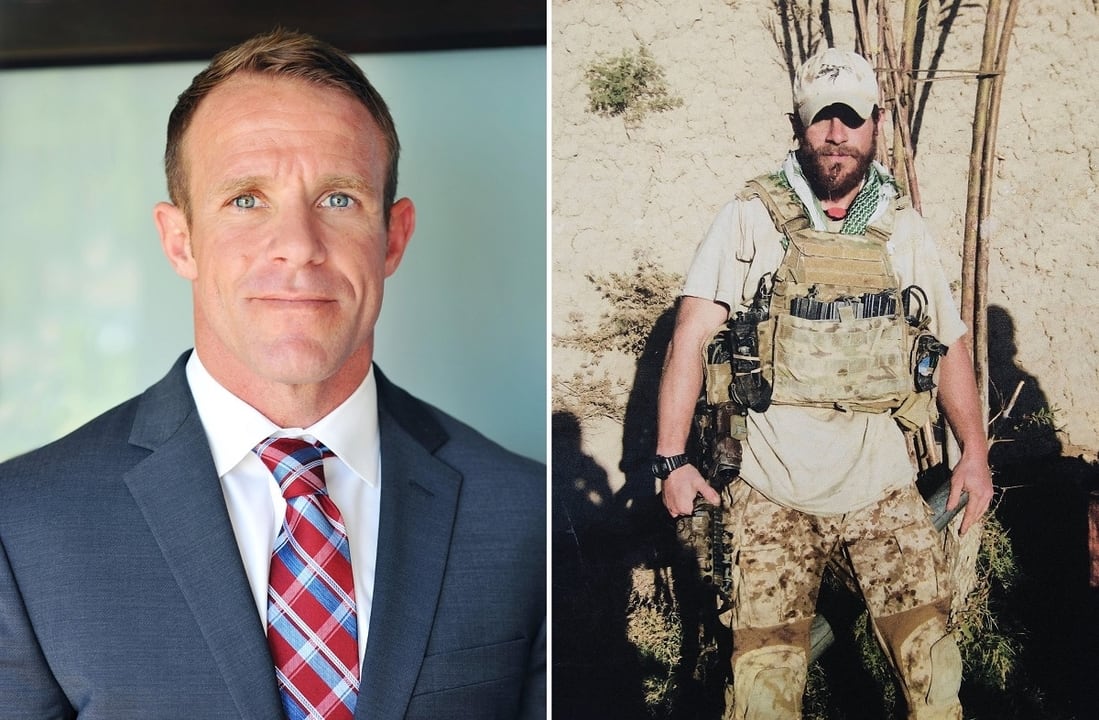Two Marine Raiders facing murder charges in the death of an Army Green Beret played a much larger role in the death than had been previously revealed through media reports, according to official documents.
Military Times has verified the names of the two Marine Raiders facing felony murder and related charges in connection with the strangulation death of Army Special Forces Staff Sgt. Logan Melgar at his residence in Bamako, Mali, on June 4, 2017.
Gunnery Sgt. Mario Madera-Rodriguez and Staff Sgt. Kevin Maxwell face an Article 32 hearing on Dec. 10 along with Navy SEALs Chief Petty Officer Adam Matthews and Petty Officer Anthony DeDolph.
In 2016, a then-Staff Sgt. Madera-Rodriguez, assigned to Marine Corps Special Operations Command, received the “American Hero Award,” specifically the John Archer Lejeune Award of Bravery for valor displayed during combat operations on Nov. 20, 2015, according to a 2nd Marine Expeditionary Force release at the time.
Though Melgar died in June 2017, his death was not reported publicly until late September. Media accounts identified the SEALs, both members of SEAL Team Six, allegedly involved early on, but the Raiders' involvement did not emerge in reporting until earlier this year.
Charge sheets for all four individuals were redacted, but Military Times verified the identities of the Marines with the attorneys representing them in their pending cases.
Maj. Nicholas Mannweiler, a MARSOC spokesman, declined to release the identities or related information regarding the two Marine Raiders but did say the command is aware of the charges and the two Marines remain in a duty status at Camp Lejeune, North Carolina.
The two SEALs were flown back from Mali shortly after the incident and have remained on administrative hold at Dam Neck, Virginia, their unit headquarters.
“The reputation of the SOF community has been built on the sacrifices, bravery and honor displayed over the last 31 years of defending our nation’s most sensitive interests overseas. If these allegations are substantiated, they represent a violation of the trust and standards required of all service members," Mannweiller wrote in an email statement. "Trust and accountability are the foundational requirements of all service members when conducting our nation’s most complex, sensitive and high risk operations. We hold ourselves and each other accountable on a daily basis because we know that lives are on the line.”
RELATED

While some details differ, at this point all four men face the same charges: felony murder, involuntary manslaughter, conspiracy, obstruction of justice, hazing and burglary
For months, statements from Matthews and DeDolph revealed a limited picture of what might have happened in the early morning hours of June 4, 2017, in the off-site housing shared by the SEALs and Melgar.
The troops were in the country on a mission supporting Malian and French counterterrorism units fighting al-Qaida factions in the region.
Initial media reports of the Raider involvement seemed to limit their role to potential witnesses to the incident. But the charge sheets allege a deeper level of involvement.
Shortly after the incident became public, accounts of shifting stories by the SEALs to both Army and Navy investigators raised questions about how Melgar died.
The investigation began with Army Criminal Investigation Command, which later handed it off to Navy Criminal Investigative Service on Sept. 24, 2017.
The SEALs first told investigators that they found Melgar unconscious and tried to revive him. They later changed their stories and said they were conducting hand-to-hand combat training with Melgar in the residence, and that Melgar was drunk and passed out when they tried to revive him.
When toxicology reports revealed no alcohol or drugs in Melgar’s system and friends told investigators that the staff sergeant didn’t drink alcohol, investigators became more suspicious.
The two later changed their story again, saying that they had ambushed Melgar in his room over a perceived slight when he failed to stop and give them a ride to a party. A witness told investigators that one of the SEALs said he wanted to “get back” at Melgar for the incident.
But they left out what was later alleged, that two Marine Raiders were also in the room and helped restrain Melgar before one of the SEALs put him in a chokehold, leading to his death by strangulation.
The SEALs did tell investigators they tried to resuscitate Melgar first through CPR then via a field expedient tracheotomy or a cricothyrotomy. But investigators later saw that differently.
They have included the medical procedure was part of an obstruction of justice charge against the same SEAL accused of choking Melgar, saying he performed the act to “hide evidence of the injuries inflicted” on Melgar, according to the charge sheet.
Part of the account presented in documents alleges that the Marines and the SEALs went to separate housing for the Marines to get duct tape to restrain Melgar.
The four broke into Melgar’s locked room, where he was sleeping, to assault him, according to the charges.
But the SEALs told investigators the Marines weren’t there.
Madera-Rodriguez, the Marine gunny, told investigators that he saw Melgar and another of the defendants talk to each other and “chuckle and smile at the threshold” of Melgar’s door.
Investigators allege that was a lie.
He also said that one of the SEALs and Melgar voluntarily began to wrestle each other.
Investigators also allege that was a lie.
Maxwell, the Marine staff sergeant, told investigators that he and Madera-Rodriguez were not in the residence and didn’t hear anything out of the ordinary. And, as far as he knew, no one was drinking alcohol that night. While specific individuals were not listed in connection with using alcohol, investigators labeled those statements as lies.
They also have included disposing of the alcohol as part of the larger conspiracy charge against all four co-defendants.
Melgar was nearing the end of his deployment to Mali at the time of his death. He reportedly told his wife he had a ‘bad feeling’ about some of his fellow troops. Some reports indicated that Melgar may have discovered an illegal cash-skimming scheme by fellow special operators.
Charges listed do not indicate any criminal allegations beyond those that led to Melgar’s death.
Todd South has written about crime, courts, government and the military for multiple publications since 2004 and was named a 2014 Pulitzer finalist for a co-written project on witness intimidation. Todd is a Marine veteran of the Iraq War.




